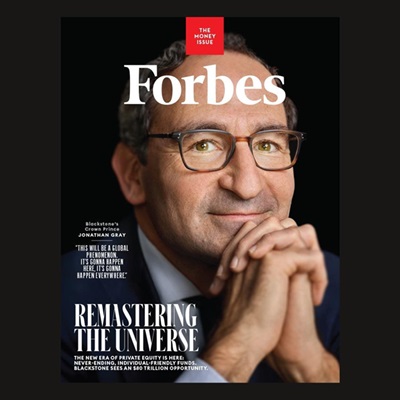Editor’s Note: Today, we’re bringing in our good friend Jared Dillian, bestselling author and editor of The Daily Dirtnap (a must-read for all of us here at RiskHedge). The reason? Well, if you’ve been following along, you know we see a lot of volatility ahead as we get closer to the election. In fact, the latest Disruption Investor issue—The hedging issue—is all about protecting your portfolio.
Jared, who’s been in this game a long time, says something bigger is happening behind the scenes that goes beyond the expected election volatility... something you want to get ahead of today to not only protect yourself but potentially profit as it all unfolds.
We called Jared for more...
***
Chris Reilly: Jared, you've been writing about what you call “the biggest bubble in anything since the housing bubble in 2008.”
I’m talking about private equity.
You say private equity is “going down.” And while you don't think it'll necessarily cause the next crisis or recession, you say it'll prolong the pain over a period of years.
Before we get into that, can you quickly share for our readers how private equity works in a nutshell and what’s happening right now?
Jared Dillian: So, private equity firms don't buy stocks. They don't buy public companies. They invest in private companies, and they typically do so with a lot of leverage. They'll take out a lot of debt and buy a private company and leverage it up, and they'll own it and run it and try to make it as (in their words) efficient as possible.
Typically, they fire a lot of people and raise prices, then try to squeeze every dollar out of the business. And then hopefully, in a couple years when valuations have gone up, they take it public or sell it to another company.
That's basically how the business works. And if you go back 20 years ago, there were only a handful of private equity firms doing this. Now, there are 17,000… and a lot of competition for deals.
If you go back to the mid-2010s, interest rates were zero. So you could effectively borrow at zero and you could buy a company for 4X–5X earnings. Now, you're borrowing at 5.5%–6%, and valuations are 10X–12X earnings. It just doesn't make any sense.
And like I said, you have 17,000 private equity firms all in competition for deals. They're going down the ladder in terms of quality and size... buying car washes, bakeries, pizza places, and stuff like that.
Chris: I’ve noticed that some of my favorite businesses have gotten worse. Way worse...
Jared: I call it “enshittification.” Quality is going down, and prices are going up.
My favorite example of this is P.F. Chang’s, which was taken over by private equity about five years ago. Prices have doubled and the food is terrible. P.F. Chang's used to have good business. It used to be publicly traded under the ticker “PFCB.”
Now it's run by a 33-year-old private equity guy who doesn't know anything about the restaurant business. He's trying to squeeze every dollar out of it, exit, and give a bag of crap to someone else. So that's it. That's the whole situation in a nutshell.
Chris: You ran a trading desk at Lehman Brothers from 2001 right up to the collapse in 2008. In your Dirtnap letter, you wrote there were a bunch of warning signs. You called your wife that summer and said, “Lehman's going down.”
What other warning signs are you seeing in the private equity market right now?
Jared: To go back to the housing bubble for a second, I was early on that. I remember one time we drove out to Pennsylvania to visit my wife's family, and we were driving around and there were these housing developments with about 500 units in the middle of nowhere that were just totally unoccupied.
You would drive around and see these things and think, “This is a bubble.” I went to LA, to Hermosa Beach, and there was just all this anecdotal evidence that was piling up.
So with private equity, I would say the first thing that got my attention was the Blackstone (BX) Christmas video. I don't know if you've seen that, but they did a rah-rah Christmas video where they basically congratulated themselves on how awesome they are. And I thought, “Oh my God, this is the biggest short of all time.”
Then, Jon Gray of Blackstone was on the cover of Forbes. Caption: “Remastering the Universe.”

Source: Forbes
And also anecdotally, if you look at the young kids working in investment banking these days, they don't stay working in investment banking. Their whole goal was to go to private equity shops where the pay is exorbitant. As an associate at a private equity shop, you can make $500,000 a year at age 25.
All these examples are piling up in the private equity space. I shorted Blackstone in December of last year. And the stock is basically unchanged since then, but the broad market is up about 20%. So it's actually underperformed significantly.
Chris: Thanks, Jared. Reader, Jared will be back with us on Friday to share how you can get ahead of this situation and protect yourself from the ripple effects the private equity bubble could have on the economy.
To make you don’t miss that important issue, sign up for The Jolt today.


